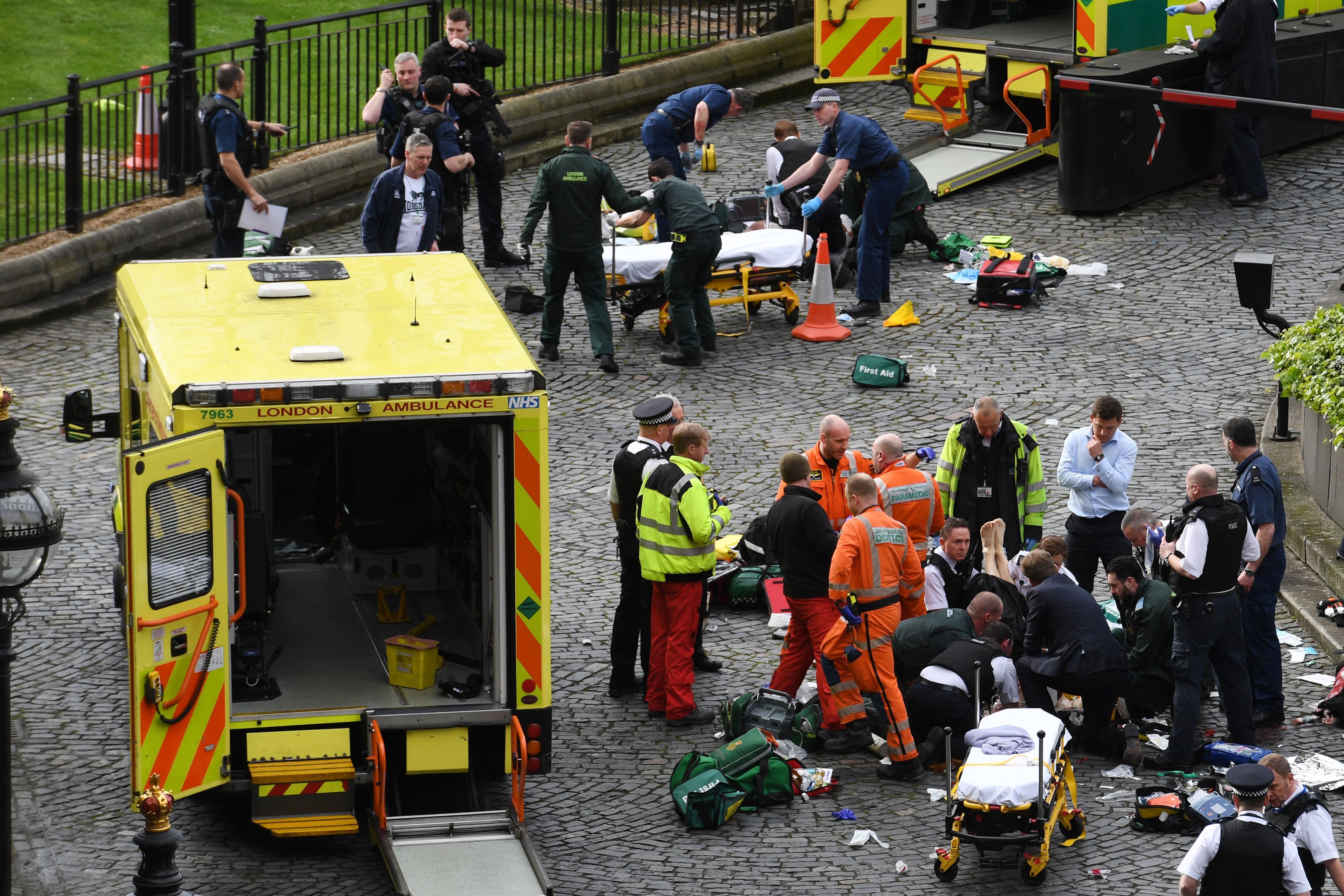In recent years, the London attack has become a critical topic of discussion, highlighting the need for security and awareness in urban environments. This article delves into the various incidents that have taken place in London, exploring their causes, impacts, and the responses from authorities and communities. As a major city with a rich history, London has faced numerous challenges related to terrorism, making it essential to understand the broader implications of these attacks.
From the tragic events of 7/7 to the more recent attacks, London has experienced a range of incidents that have shaped public perception and policy. The need for effective counter-terrorism measures has never been more apparent, as these attacks not only result in loss of life but also instill fear and anxiety among residents and visitors alike. Understanding these events is crucial for fostering resilience and promoting safety in one of the world's most vibrant cities.
This article will provide an in-depth analysis of the London attack, examining its historical context, key incidents, and the ongoing efforts to enhance security. We will also discuss the role of the community in preventing further incidents and the importance of remaining vigilant in the face of potential threats. Join us as we explore the complexities surrounding the London attack and its implications for society.
Table of Contents
- Historical Context of Terrorism in London
- Key Incidents of London Attacks
- Impact on Society and Community Response
- Government Response and Security Measures
- Conclusion
- Sources and References
Historical Context of Terrorism in London
The history of terrorism in London dates back several decades, with various groups targeting the city for political, ideological, or religious motives. The rise of international terrorism in the late 20th century, particularly after the events of September 11, 2001, marked a significant change in the nature of threats faced by the city. Understanding this historical context is essential to comprehending the motivations behind the London attack.
Key Incidents of London Attacks
London has witnessed several high-profile terrorist attacks over the years. Each incident has left a lasting impact on the city's residents and has raised questions regarding security and public safety. Below, we will explore four notable incidents that have shaped the narrative surrounding the London attack.
The 7/7 Bombings
On July 7, 2005, London experienced one of its deadliest terrorist attacks when a series of coordinated bombings occurred on the city's public transport system. Four suicide bombers detonated explosives on three underground trains and a bus, resulting in 52 civilian fatalities and over 700 injuries. This tragic event shocked the nation and led to an immediate reassessment of security measures.
The Westminster Attack
On March 22, 2017, a lone attacker drove a vehicle into pedestrians on Westminster Bridge before crashing into the gates of the Houses of Parliament. The attacker then exited the vehicle and stabbed a police officer, resulting in five deaths, including his own. This attack highlighted the vulnerability of public spaces and the need for enhanced security measures in key locations.
The London Bridge Attack
On June 3, 2017, a van was driven into pedestrians on London Bridge, followed by a stabbing spree in the nearby Borough Market. Eight people were killed, and many others were injured. The quick response from law enforcement showcased the importance of rapid intervention in preventing further casualties during such attacks.
The Finsbury Park Attack
The Finsbury Park attack occurred on June 19, 2017, when a man drove a van into a group of Muslims leaving a mosque after evening prayers. This attack was classified as a hate crime and resulted in one death and several injuries. It underscored the emergence of far-right extremism as a growing concern in London and beyond.
Impact on Society and Community Response
The impact of these attacks on London’s society has been profound. Fear and anxiety often grip communities following such incidents, leading to a decrease in public engagement and an increase in social division. However, the resilience demonstrated by Londoners has been remarkable, with many communities coming together in solidarity against hatred and violence.
- Community vigils and memorials have been organized to honor victims.
- Initiatives promoting interfaith dialogue and understanding have gained momentum.
- Local authorities have enhanced community policing efforts to build trust and cooperation.
Government Response and Security Measures
In response to the increasing threat of terrorism, the UK government has implemented a range of security measures aimed at protecting citizens and preventing future attacks. These measures include:
- Increased funding for counter-terrorism operations.
- Enhanced intelligence-sharing between agencies.
- Incorporation of advanced surveillance technologies in public spaces.
- Community engagement programs to encourage reporting of suspicious activities.
While these measures have proven effective in some instances, the balance between security and civil liberties remains a contentious issue. Ongoing debates surrounding privacy rights and the extent of surveillance continue to shape public discourse.
Conclusion
In conclusion, the London attack represents a significant challenge for a city steeped in history and diversity. The events discussed in this article serve as a reminder of the importance of vigilance, community solidarity, and effective government response in the face of terrorism. As London continues to confront these threats, it is essential for residents and authorities alike to work together to foster a safer and more inclusive environment.
We encourage readers to reflect on the information presented and consider ways to contribute to community safety. Please leave your comments below, share this article, and explore additional resources on our site to stay informed.
Sources and References
- BBC News. "Timeline of Terrorist Attacks in London." [Link]
- The Guardian. "How London Became a Target for Terrorism." [Link]
- UK Government. "Counter-Terrorism Strategy." [Link]
- Institute for Strategic Dialogue. "Understanding the Impact of Terrorism on Communities." [Link]
Bruce Campbell 727: The Legend Of Ash Williams And His Iconic Journey
Kate Beckinsale: Serendipity Premiere And Its Impact On Her Career
Iceland State Of Emergency: What You Need To Know


